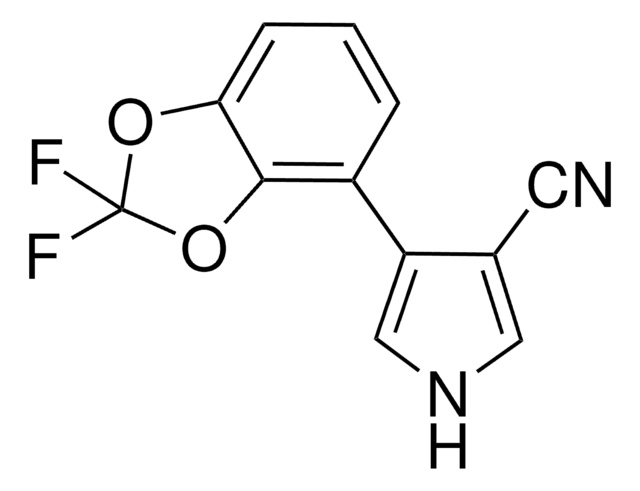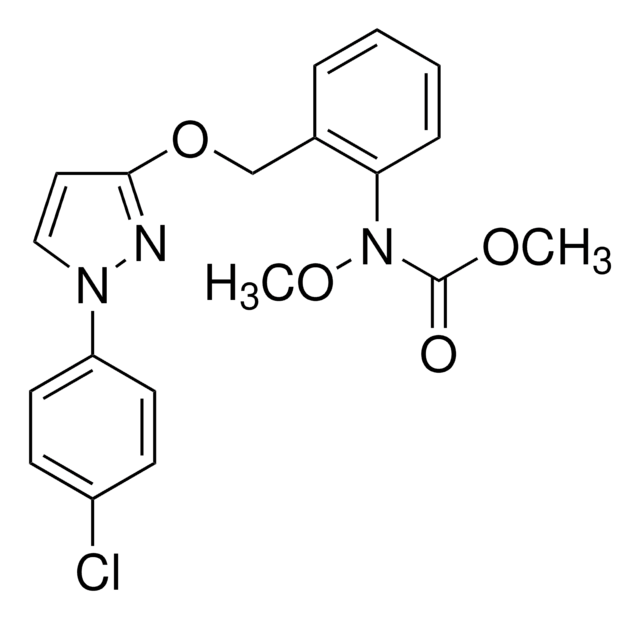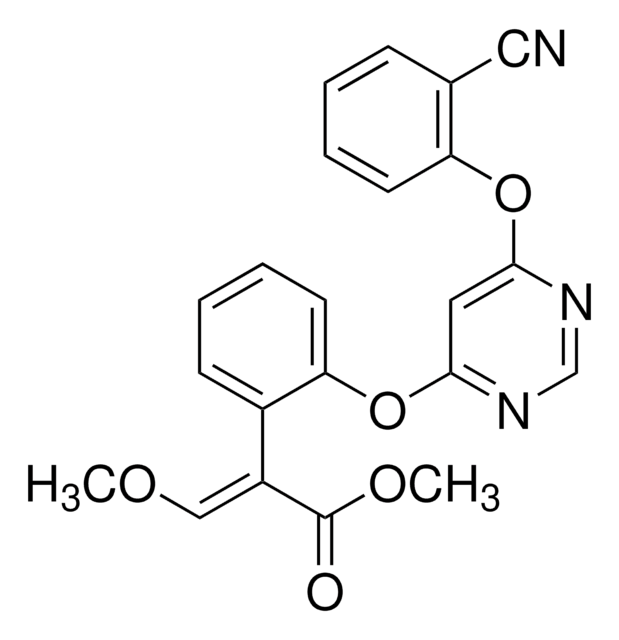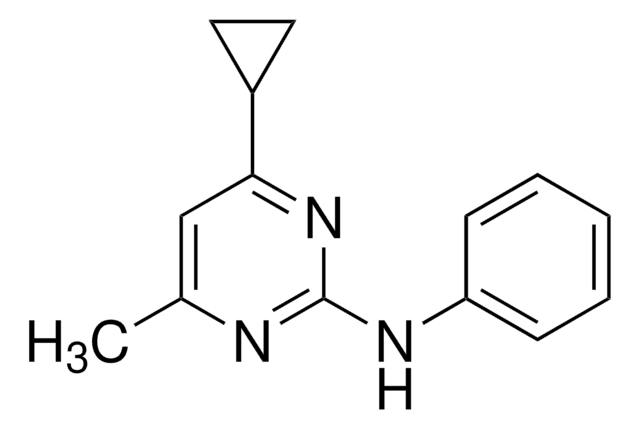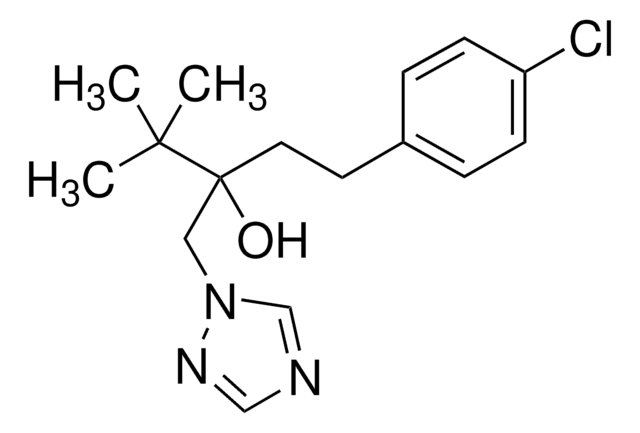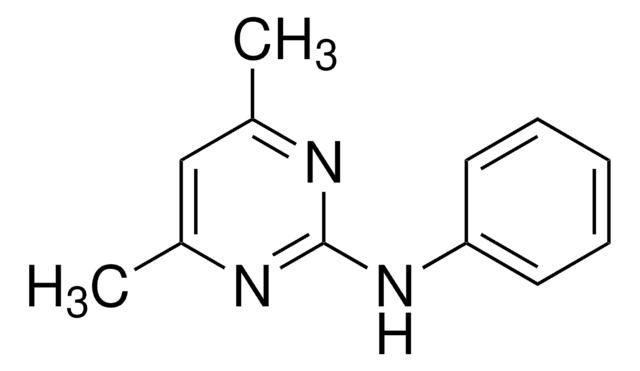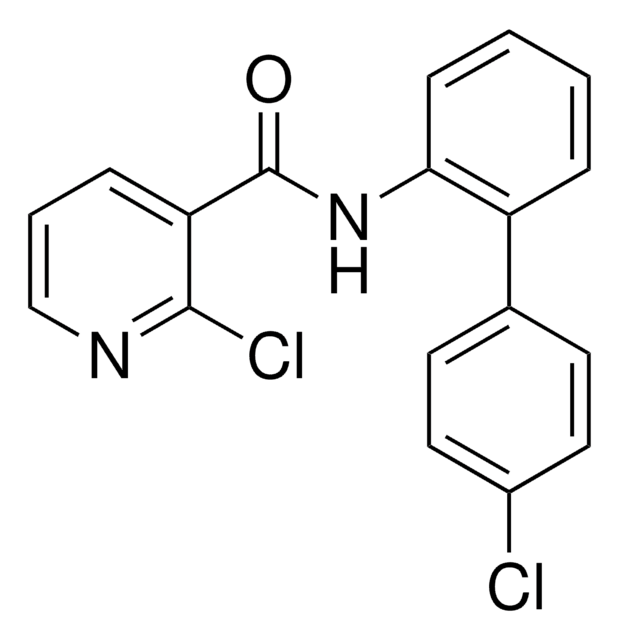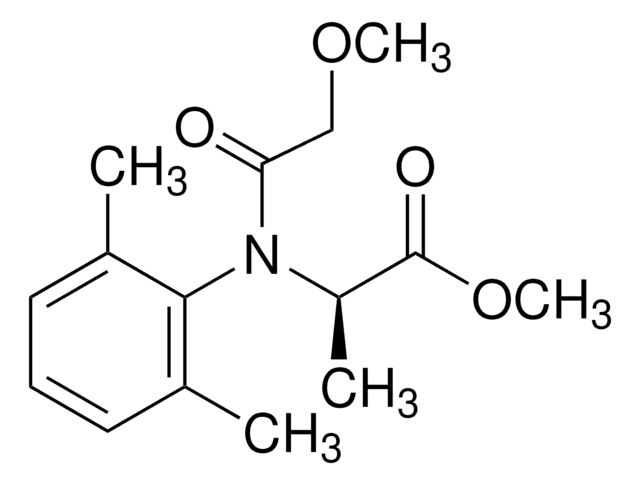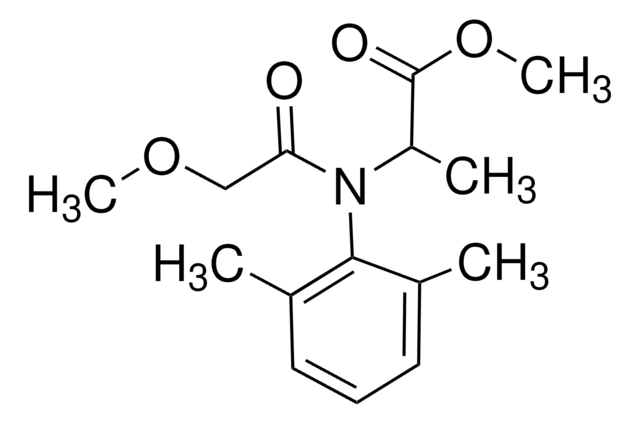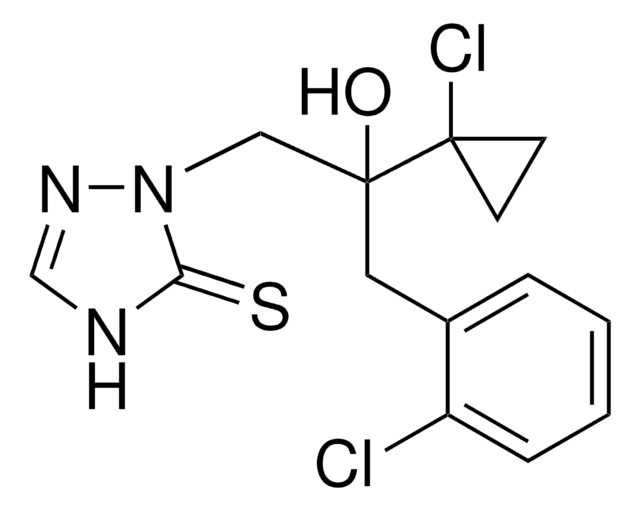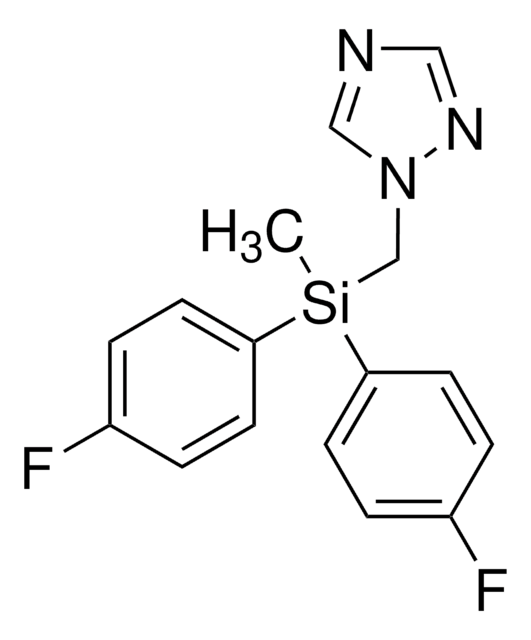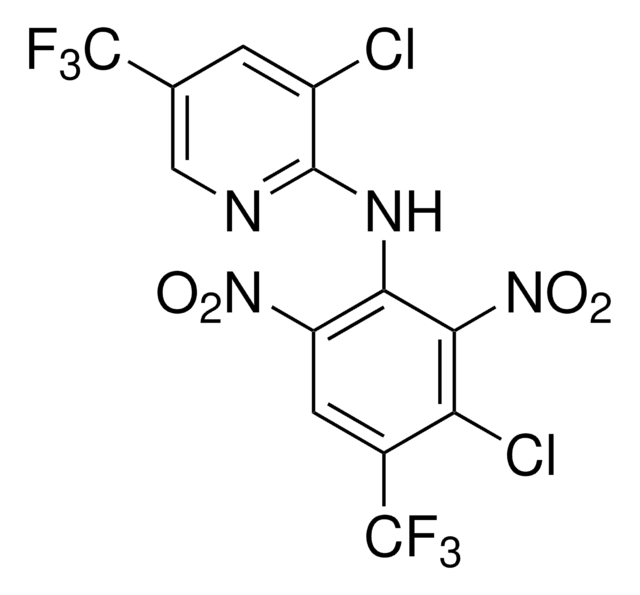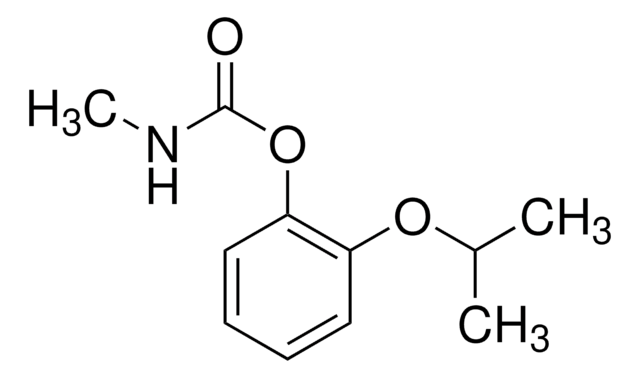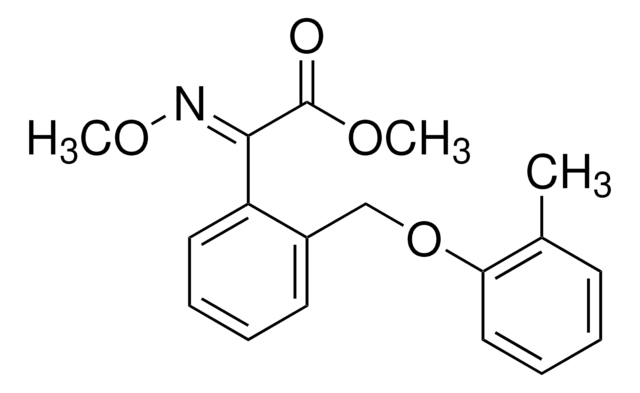46102
Fludioxonil
PESTANAL®, analytical standard
About This Item
Prodotti consigliati
Grado
analytical standard
Livello qualitativo
Nome Commerciale
PESTANAL®
Durata
limited shelf life, expiry date on the label
applicazioni
agriculture
environmental
Formato
neat
Stringa SMILE
FC1(F)Oc2cccc(c2O1)-c3c[nH]cc3C#N
InChI
1S/C12H6F2N2O2/c13-12(14)17-10-3-1-2-8(11(10)18-12)9-6-16-5-7(9)4-15/h1-3,5-6,16H
MUJOIMFVNIBMKC-UHFFFAOYSA-N
Cerchi prodotti simili? Visita Guida al confronto tra prodotti
Categorie correlate
Applicazioni
- Fludioxonil fungicide in agricultural biotech: Fludioxonil′s effectiveness against the two-component histidine kinase Bos1 in Botrytis cinerea was explored, revealing its binding mode and molecular mechanism. This research underscores its critical role as a fungicide in agricultural biotechnology, providing insights that could lead to improved crop protection strategies (Yin et al., 2024).
- Fludioxonil biochemical research for pathogen resistance: The study on Fusarium species causing soybean root rot examined the genetic basis of differing sensitivities to DMI fungicides, including fludioxonil. This contributes to a deeper understanding of fungal resistance mechanisms, enhancing the development of more effective fungicidal treatments (Zhang et al., 2024).
- Fludioxonil antifungal properties in plant disease control: Research characterized fludioxonil and phenamacril dual resistant mutants of Fusarium graminearum, highlighting fludioxonil′s critical role in managing resistance in pathogens and its ongoing relevance in managing crop diseases (Wen et al., 2024).
Note legali
Non trovi il prodotto giusto?
Prova il nostro Motore di ricerca dei prodotti.
Avvertenze
Warning
Indicazioni di pericolo
Consigli di prudenza
Classi di pericolo
Aquatic Acute 1 - Aquatic Chronic 1
Codice della classe di stoccaggio
11 - Combustible Solids
Classe di pericolosità dell'acqua (WGK)
WGK 2
Punto d’infiammabilità (°F)
Not applicable
Punto d’infiammabilità (°C)
Not applicable
Dispositivi di protezione individuale
Eyeshields, Gloves
Scegli una delle versioni più recenti:
Certificati d'analisi (COA)
Non trovi la versione di tuo interesse?
Se hai bisogno di una versione specifica, puoi cercare il certificato tramite il numero di lotto.
Possiedi già questo prodotto?
I documenti relativi ai prodotti acquistati recentemente sono disponibili nell’Archivio dei documenti.
I clienti hanno visto anche
Il team dei nostri ricercatori vanta grande esperienza in tutte le aree della ricerca quali Life Science, scienza dei materiali, sintesi chimica, cromatografia, discipline analitiche, ecc..
Contatta l'Assistenza Tecnica.